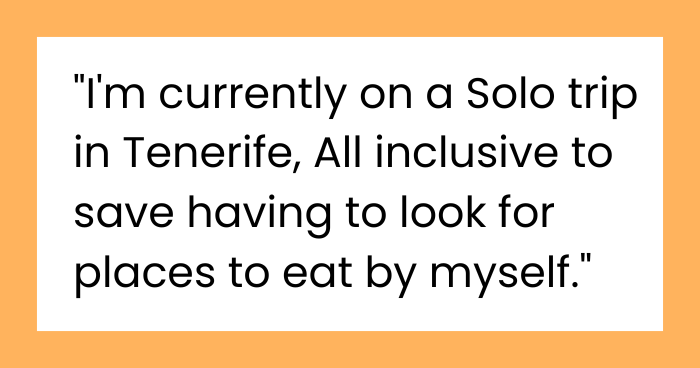AITA for Enforcing My Son’s Boundaries During My Daughter’s Sleepover?

A 42-year-old dad is trying to manage joint custody of his 17-year-old daughter Anya while also raising his 14-year-old stepson Noah, who lost his mom. Over the weekend, he allowed Anya to host a sleepover with four friends but gave two simple rules — no going into Noah’s room and no loud noise after 11 p.m. The girls ignored the rules, went into Noah’s space, and messed with his things until he cried. The dad stepped in, shut the sleepover down, called the parents, and sent the girls home. Now Anya feels embarrassed, refuses to talk, and the dad is stuck wondering if he made a mistake.
The journey of parenting might make you want to pull your hair out at times
This dad hit a wall with his teen after she blatantly ignored the boundaries he set
1. Respecting Teen Privacy & Space
For teens, privacy isn’t just a want, it’s a need. Experts, including the American Psychological Association, say teenagers need their own space to grow independence and self-identity. That’s exactly why the dad was right to set a clear boundary around Noah’s room.
A 2018 Journal of Adolescent Health study even showed that respecting teen privacy lowers stress and boosts self-esteem. On the flip side, breaking those boundaries can trigger anxiety or depression. Noah’s reaction — tears and pulling away — is proof of how much those lines matter.
2. Peer Pressure & Consent Violations
What happened here wasn’t “just kids being kids.” Anya’s friends went into Noah’s room because of peer pressure — a classic teen behavior. Psychologists call it “group diffusion,” where kids feel less accountable in a group. But it still crossed a serious line: privacy and consent.
Taking someone’s belongings without permission breaks trust, especially during the fragile teenage years. Mental health experts warn that these consent violations can cut deep, making kids feel unsafe in their own homes.
3. Parental Intervention & Emotional Intelligence
The dad acted fast, and honestly, that mattered. According to the Trauma and Resilience Center at the University of Chicago, immediate intervention is key to protecting emotional health and setting boundaries. Talking to Noah one-on-one afterward was also smart — it gave him comfort and validation.
Still, there’s a balance. The Journal of Family Psychology points out that being too strict can backfire with teens. Some experts recommend a “consequence plus teach” approach. In other words, enforce rules but also sit down the next day, hear Anya out, and turn the moment into a learning experience.
4. Balancing Rules with Empathy
Rules are necessary, but how you frame them matters. Instead of “my rules, my house,” psychologists suggest treating them as shared expectations. A better approach might be asking: “How can we make sure our home feels safe tonight?”
Anya’s embarrassment could actually be rooted in shame, and shame is known to block healthy communication. Focusing on empathy and mutual respect can reduce rebellion and make teens feel more connected to the family.
5. Legal & Ethical Responsibilities in Shared Homes
From a family law perspective, parents are legally responsible for the safety and well-being of every child in the home. That includes enforcing boundaries when one child’s welfare is at risk.
Therapists also stress sibling equality — no one child’s needs should outweigh the other’s. Protecting Noah’s privacy while also respecting Anya’s independence builds long-term trust in a blended family.
6. Conflict Resolution & Next Steps
To move forward, here are a few steps that could help rebuild trust:
- Family Dialogue Session — Create a safe space for both Anya and Noah to share feelings, with dad mediating.
- Revised Sleepover Guidelines — Let Anya help shape the rules so she feels ownership instead of embarrassment.
- Repair Gesture — A small outing or dinner with Anya could ease the tension while reinforcing the importance of respect.
- Empowering Noah — Encourage Noah to set his own boundaries with tools like a “no entry” sign or personal ground rules.
“Why are you even asking this?”: The father provided some more info in the comments section
Final Verdict
NTA (Not the Asshole). The father did the right thing by protecting his son’s mental health and making sure the rules of the house were followed. His action was in keeping with developmental and moral norms, and even though Anya was hurt, the key point is still to live together in peace. The family can fix trust and show both teens how to handle conflicts by talking to each other with empathy and making rules together.






















